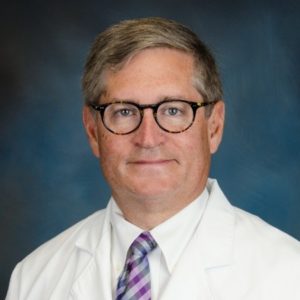COVID-19 Trends in Nursing Homes Make CMS “Very Concerned”
 A surge of COVID-19 cases among nursing home residents and staff combined with stagnant vaccination rates for nursing home staff and the rise of the highly infectious Delta variant as the predominant strain of SARS-CoV-2 in the United States is a warning sign that nursing homes should heed, suggested officials with the Centers for Medicare & Medicaid Services (CMS) and the Centers for Disease Control and Prevention (CDC) at the Aug. 25 National Nursing Home Call.
A surge of COVID-19 cases among nursing home residents and staff combined with stagnant vaccination rates for nursing home staff and the rise of the highly infectious Delta variant as the predominant strain of SARS-CoV-2 in the United States is a warning sign that nursing homes should heed, suggested officials with the Centers for Medicare & Medicaid Services (CMS) and the Centers for Disease Control and Prevention (CDC) at the Aug. 25 National Nursing Home Call.
Key topics discussed during this call include the following:
Emergency staff vaccination mandate is needed
On Aug. 18, CMS announced that it is developing an emergency regulation that will require staff at all Medicare- and Medicaid-participating nursing homes to be vaccinated against COVID-19. “We intend to issue the regulation sometime in late September, and even before that, we will be having another one of these calls [when] we can walk through the requirements so it can be implemented quickly,” said agency officials.
The reasons for the staff vaccination mandate include the following, according to CMS officials:
- Nationally, nursing home staff vaccination rates have been stuck around 60 percent for several weeks. Specifically, as of Aug. 15, the national percent of vaccinated staff per facility is 61.1 percent, according to CMS’s COVID-19 Nursing Home Data. In comparison, the national percent of vaccinated residents per facility is 83.1 percent.
- COVID-19 cases continue to increase among residents and staff. “We are very concerned about the trajectory of cases,” said officials. For the week ending June 27, nursing homes reported 322 resident cases and 56 resident deaths, as well as 615 staff cases and 5 staff deaths. Since then, cases among both residents and staff have risen pretty steadily. For the week ending Aug. 15, there were 3,615 resident cases and 281 resident deaths nationwide, while staff cases and deaths totaled 5,855 and 26, respectively.
- Vaccination makes a difference. “As community cases go up, then nursing home cases generally go up. Throughout the pandemic, that has been the case, and it is still the case now. However, there is a difference,” stressed CMS officials. For the week ending Aug. 8, providers reported roughly 3,000 resident cases and 5,000 staff cases. Looking at a week with the same level of community transmission that occurred prior to the introduction of the COVID-19 vaccine, “there were 18 – 20,000 resident cases in a week and 17 – 20,000 staff cases in a week,” they explained. “That is roughly five to six times more cases pre-vaccine. This really speaks to the protective nature of the vaccine and how important it is for everyone to get vaccinated.”
In addition, before the vaccine’s introduction, resident cases per week were slightly higher than staff cases, noted officials. “Since the vaccine was introduced, that has flipped. And that speaks to how resident vaccination rates are much higher than staff vaccination rates. It means that vaccination works, which is great news.”
- A national mandate will reduce inequities. Currently, providers and states have created a patchwork of mandates, noted officials. As a result, some staff may want to go work at a nursing home without a mandate, but other staff may want to go work at a nursing home with a mandate. “Because of the absence of a national standard, there could be inequities among nursing homes that impact the level of care provided to residents,” they pointed out. “This effort levels the playing field for all staff to get vaccinated.”
Federal law prohibits CMS staff from discussing a pending regulation while it is in rule-making. So, the main purpose of the Aug. 25 call was to “to set the stage with you for further engagement in subsequent weeks,” said officials. However, they did address two key concerns:
- Staff leaving the nursing home sector for other healthcare jobs. Many providers are afraid that staff will stop working for nursing homes and transition to jobs in other healthcare sectors. But major employers both in healthcare and outside of healthcare are implementing vaccine mandates on an almost daily basis, said CMS officials. “In other words, the options for people to go to other employers are becoming smaller and smaller. All employers are really looking at this because the vaccine is the most effective way to prevent transmission.”
- How the emergency regulation will be enforced. “This new requirement will be enforced in the same manner that is expected of all Medicare- and Medicaid-certified facilities with regard to compliance,” said CMS officials. “Termination is not typically the first enforcement action. We usually use a progressive pattern of enforcement and remedies.”
Providers still have work to do while they wait for the emergency standard, said CMS officials. “In the interim, we continue to strongly encourage nursing home residents and staff to get vaccinated now, and as noted in the interim final rule no. 5, the requirement still exists to educate, to offer, and to report so that all resources can be brought to bear as we continue to work against the pandemic and the devastating impact that it has on everyone.”
“In addition to residents and staff, we encourage you to promote vaccination among family, friends, and even loved ones who are visiting your facilities,” added CDC officials.
Infection prevention and control ‘more urgent than ever’
The amount of transmission that is occurring with the Delta variant means that “it is more urgent than ever to closely follow infection prevention and control recommendations,” said CDC officials. “A few months ago when numbers were lower, we had started the process of trying to create some exceptions for vaccinated individuals, but our key guidance for nursing home staff, visitors, and residents has not changed.”
CMS is still seeing some breaches in infection prevention and control during surveys, added officials. “One thing to remember is: Don’t let the term ‘I’m vaccinated’ be an excuse to let your guard down. There are other people who need to be protected, so make sure that you are doing all of the recommended practices to prevent the spread of COVID-19 in nursing homes.”
Note: The CDC plans to release a one-page refresher on infection prevention and control practices. In the meantime, the Interim Infection Prevention and Control Recommendations to Prevent SARS-CoV-2 Spread in Nursing Homes, last revised on March 29, is available here.
Non-COVID survey issues need to be addressed ASAP
Two additional problem areas that CMS is seeing in the data and on survey are weight loss and mobility (i.e., the resident’s need for assistance with the activities of daily living), said officials. “We urge you to please do what you can to get back to those areas that are not so much related to infection control, but have obviously been impacted by the pandemic. We’ll give you more information on that as we progress.”
Booster shot planning should start now
On Aug. 12, the Food and Drug Administration (FDA) authorized a third dose of both the Pfizer-BioNTech COVID-19 vaccine (now called Comirnaty) and the Moderna COVID-19 vaccine for certain immunocompromised people, and on Aug. 13, the Advisory Committee on Immunization Practices (ACIP) followed up with an interim recommendation for use of this additional dose.
Then on Aug. 18, the U.S. Department of Health and Human Services (HHS) announced a plan to offer all Americans booster shots for the Comirnaty and Moderna vaccines starting eight months after the person’s second dose—if the plan is authorized by both the FDA and ACIP. Note: HHS anticipates that Johnson & Johnson (aka Janssen) booster shots will be offered as well when more data is available.
“We know that a third dose is now recommended for immunosuppressed residents and potentially all residents in the future,” pointed out CDC officials. “So, we are encouraging all nursing homes to begin planning now for a third dose. The goal is for people to start receiving booster shots sometime in the fall.”
On the positive side, the United States now has ample vaccine supply and many options for accessing doses, said CDC officials. “There may be concerns about having to negotiate for pharmacy support when there is that broader community interest and access to the vaccine happening. However, the really encouraging news is that all of you as providers have experience working with both pharmacy and jurisdictional partners to obtain and administer vaccine, and this program is really building on those available options to maximize flexibility.”
While details are still being worked out, the CDC has significantly expanded the pharmacies that are participating in the federal retail pharmacy program, including both long-term care pharmacies and retail pharmacies, said officials. “Many nursing homes will be able to work with their existing pharmacy partner to coordinate delivery and administration of vaccine.”
That coordination will be “even more critical in light of the timing of the booster doses potentially coinciding with influenza vaccination efforts in facilities and in the community,” they stressed. “The intent of the program is to offer as much flexibility as possible so that you can meet the needs of your residents and staff. In addition, there are state and local health departments. as well as federal supports, to be a resource to ensure that these connections are being made between providers and vaccine providers.”
COVID-19 vaccination reporting module: Updates are here
Under the Medicare and Medicaid requirements of participation, nursing homes must report weekly staff and resident COVID-19 vaccination data via the Weekly Healthcare Personnel (HCP) and Resident COVID-19 Vaccination data reporting module in the CDC’s National Healthcare Safety Network (NHSN). “Based on the evolution of the pandemic and recommendations for additional vaccine doses and booster shots, new questions have been added to the data collection forms effective this week,” said CDC officials.
The main changes are as follows:
- A new question 4 on the data collection form to report the cumulative number of individuals [i.e., residents or staff, depending on the form) eligible to receive an additional dose of COVID-19 vaccine. This question is required, not optional.
- A new question 5 to report the cumulative number of individuals who received an additional dose of COVID-19 vaccine by manufacturer type. This question is also required.
“For the purpose of NHSN data reporting, facilities should refer to the updated Interim Clinical Considerations for Use of COVID-19 Vaccines Currently Authorized in the United States for guidance to determine individuals who are considered eligible to receive additional doses or boosters after receiving a complete initial vaccination series,” said CDC officials.
“Updated training materials and supporting documents to assist facilities with completing these new questions on the NHSN data collection forms have been posted,” they noted. “This includes data collection forms and tables of instructions, training slides, CSV file upload materials, and updated frequently asked questions. Updated data tracking worksheets are also under development and will be posted as soon as [they] are complete.”
Note: Providers can submit questions to the CDC’s user support team at NHSN@cdc.gov with the subject line “Weekly COVID-19 Vaccination.”

Caralyn Davis is a freelance writer specializing in the post-acute care sector. Email her at: caralynd@outlook.com.
Related Articles
Topics: Clinical , Featured Articles , Infection control , Medicare/Medicaid , Regulatory Compliance , Resident Care , Risk Management








